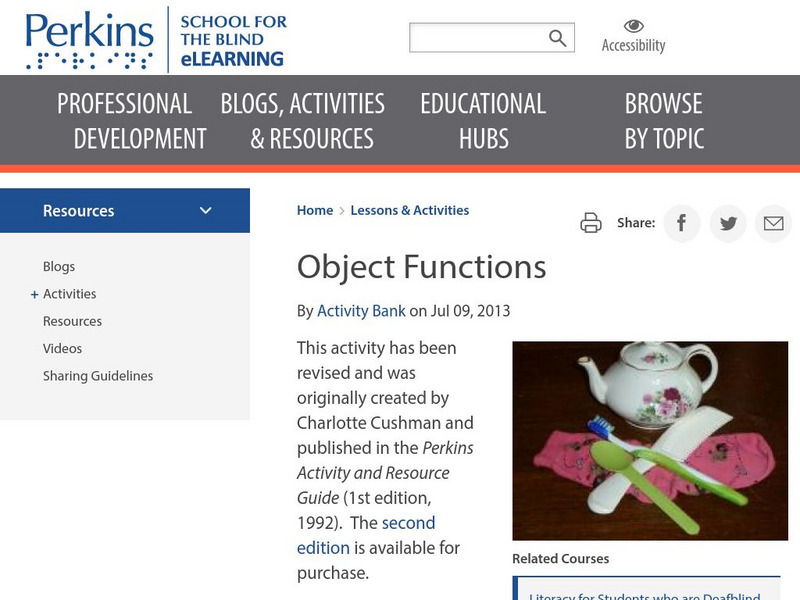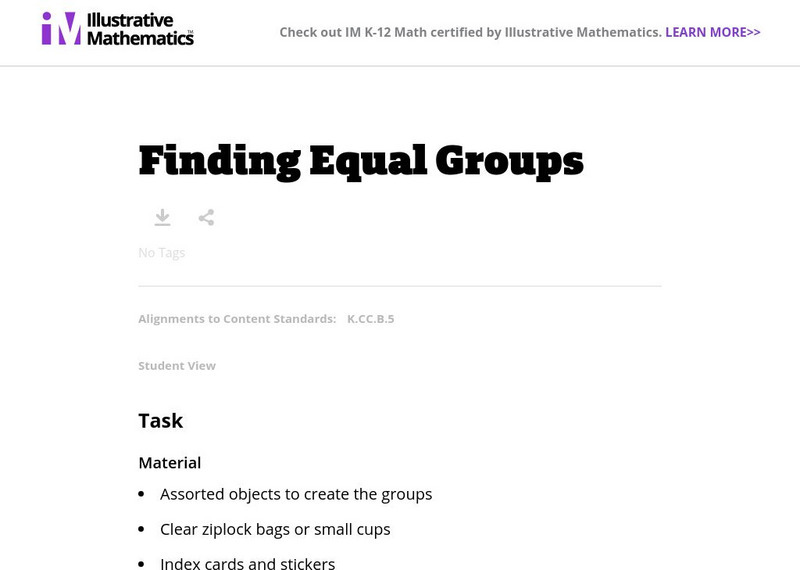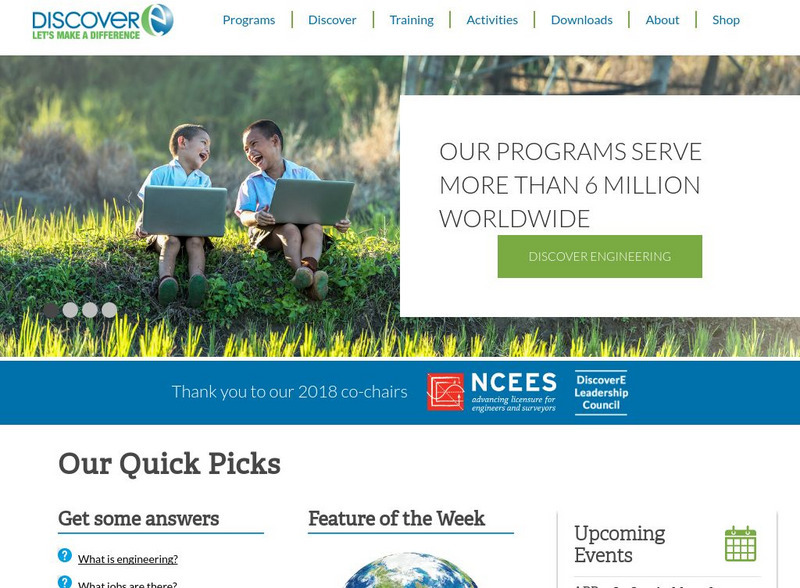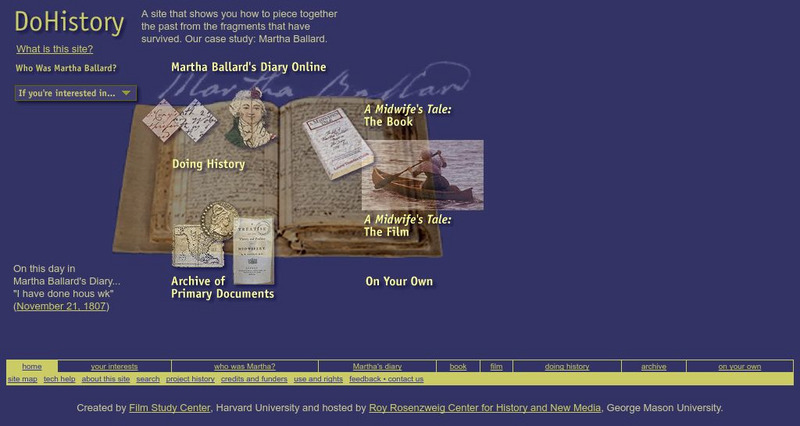Other
Perkins School for the Blind: Object Functions
This activity helps students who are blind or visually impaired to identify the functions of common objects. Alternatively, for other students a blindfold could be used.
Technovation
Curiosity Machine: Challenges: Build a 3 D Object Out of Tetrahedra
Can you build a 3-D object out of tetrahedra that is as big as you are? With this challenge, students will be using common household items to build their tetrahedra structure. Site contains the challenge, tips, a lesson plan, and a place...
University of Calgary
University of Calgary: Parts of Speech: Preposition & Object of Preposition
Offers a good explanation of prepositions and the object of prepositions, along with a list of common prepositions and several specific preposition tips.
Illustrative Mathematics
Illustrative Mathematics: Longer and Heavier? Shorter and Heavier?
Students will compare the length and weight of several pairs of objects to learn that weight and length are separate measurable attributes, and not always related.
Illustrative Mathematics
Illustrative Mathematics: Finding Equal Groups
This activity will test how quickly students can count objects. The teacher will assemble a variety of groups of objects in a few different forms (examples included). Students will race against the clock to sort the groups of objects...
Illustrative Mathematics
Illustrative Mathematics: Goody Bags
Students will practice counting with this small group activity - great for math stations! The teacher will pre-fill goodie bags with counting objects. Students count the objects, record the number on the post-it note and stick the...
Other
National Engineers Week Foundation: Flinker
Students investigate with common objects to see if they can make something that neither floats nor sinks, but rather "flinks" in the middle.
Curated OER
Cbc Kids: 10 of the Latest Inventions to Make Life a Little Easier
Learn about some of the nifty inventions that add more functionality to common objects. With the Smart toothbrush, your teeth will be clean in no time. The Albert Clock forces you to answer a Math question before it tells you the time....
CK-12 Foundation
Ck 12: Interactive Geometry: 2.2 Translations
Learn how a translation moves or slides an object a fixed distance in a given direction, as defined by a vector.
Technovation
Curiosity Machine: Challenges: Engineer a Space Tool
Using common household items, make a tool that an astronaut could use to pick up an object in space. This site also includes tips, lesson plans, and a place for students to document their engineering design process.
TeachEngineering
Teach Engineering: What a Drag
Students learn about friction and drag - two different forces that convert energy of motion to heat. Both forces can act on a moving object and decrease its velocity. Students learn examples of friction and drag, and suggest ways to...
Other
Do History: Using Primary Sources
This site explains the difference between a primary and secondary source. It also provides students with questions to ask when gathering evidence about a primary source document.
Library and Archives Canada
Nlc: Defining Primary and Secondary Sources
Libraries and archives hold documents and books that can be used for your research projects. Learn how to divide and identify them into primary and secondary sources in this tutorial.
Illustrative Mathematics
Illustrative Mathematics: Number Rods
This activity gives learners practice counting for meaning using unifix cubes or snap cubes. Students will count the number of unifix cubes then match the rod up to the correct number on a number line. Extension activities are included.
Alabama Learning Exchange
Alex: Animals That Measure Up!
Students will learn how to order items by length. They will use plastic toy animals for hands-on learning and then students will locate pictures of animals of various lengths and sizes in their natural habitat on the Internet. They will...
Smithsonian Institution
National Museum of Natural History: American Mammals: White Throated Woodrat
Woodrats are also known as Packrats, because they cache various manmade objects in their dens. This habit of collecting foreign objects is useful to scientists, who can place numbered sticks throughout an area and later open a den,...
Smithsonian Institution
National Museum of Natural History: American Mammals: Spotted Bat
Conspicuous and distinctive, with three highly visible white spots on its black back, and larger-than-life ears for its body size, the spotted bat would doubtless be the object of more human attention if it flew during the day. As it is,...
Sophia Learning
Sophia: Prepositions: Lesson 2
This lesson introduces prepositions and their role. It is 2 of 2 in the series titled "Prepositions."
Science and Mathematics Initiative for Learning Enhancement (SMILE)
Smile: Electrostatics
A teacher lesson plan which includes activities pertaining to common methods of charging objects - induction, conduction, and friction.













